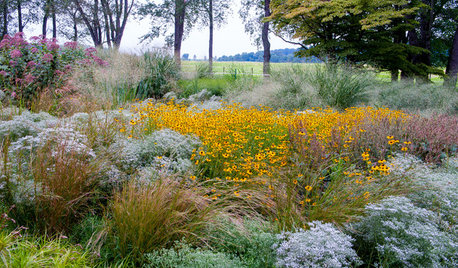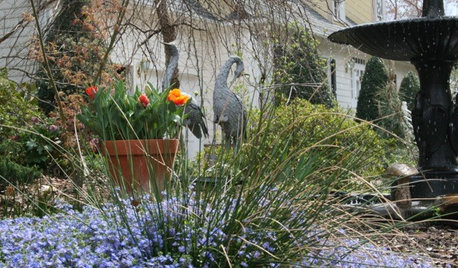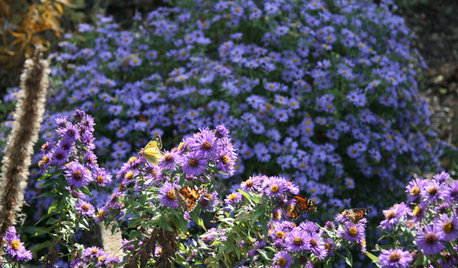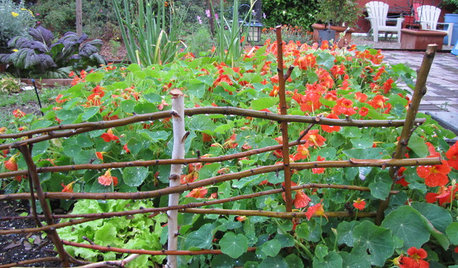sesame see oil as pesticide
ehsahr
15 years ago
Related Stories

GARDENING GUIDESThe Surprising Ingredients Every Good Garden Should Have
See what to do — and not do — for lasting rewards in your landscape
Full Story
SOUTHEAST GARDENINGSoutheast Gardener's January Checklist
Resolve to see your garden with fresh eyes this year while you plant, plan and take care of necessary maintenance
Full Story
EARTH DAYThe Case for Losing the Traditional Lawn
Work less, help the environment and foster connections by just saying no to typical turf
Full Story
GARDENING AND LANDSCAPINGBid Bad Garden Bugs Goodbye and Usher In the Good
Give ants their marching orders and send mosquitoes moseying, while creating a garden that draws pollinators and helpful eaters
Full Story
FLOWERS15 Native Flowers That Attract Butterflies
By picking plants from this list that are right for your location, you’ll get colorful blooms and support pretty pollinators
Full Story
GARDENING GUIDESHow to Switch to an Organic Landscape Plan
Ditch the chemicals for a naturally beautiful lawn and garden, using living fertilizers and other nontoxic treatments
Full Story
GARDENING AND LANDSCAPINGEdible Flowers Offer a Sweet Taste from the Garden
Flowers that beautify the landscape can also pretty up the plate or sweeten a spread
Full Story
ARCHITECTUREHouzz Tour: Modern Plays Nice in a Historic Houston Neighborhood
Subtle modern details make this new home stand out from its elderly neighbors without disrespecting them
Full Story
HOUSEKEEPING10 Things Neat Freaks Know to Be True
Do you err on the incredibly tidy side? Then you probably already live by these nuggets of neat wisdom
Full Story
DECORATING GUIDES8 Modern Uses for Classically Beautiful Linen
Possibly the ultimate neutral, linen is a natural fabric choice for rooms both elegant and casual
Full Story







lucy
tapla (mid-Michigan, USDA z5b-6a)
Related Professionals
New Bedford Landscape Architects & Landscape Designers · Hershey Landscape Architects & Landscape Designers · Horsham Landscape Architects & Landscape Designers · Kenmore Landscape Architects & Landscape Designers · Manhattan Beach Landscape Architects & Landscape Designers · North New Hyde Park Landscape Architects & Landscape Designers · Peabody Landscape Contractors · Americus Landscape Contractors · Cockeysville Landscape Contractors · Emmaus Landscape Contractors · Benton Decks, Patios & Outdoor Enclosures · Fullerton Decks, Patios & Outdoor Enclosures · Huber Heights Decks, Patios & Outdoor Enclosures · Justice Decks, Patios & Outdoor Enclosures · St. Louis Decks, Patios & Outdoor EnclosuresehsahrOriginal Author
head_cutter
tapla (mid-Michigan, USDA z5b-6a)